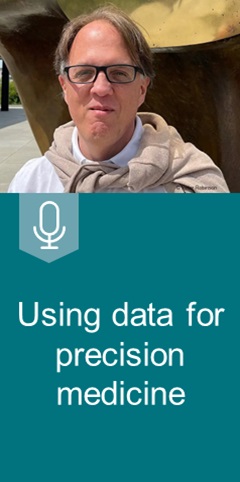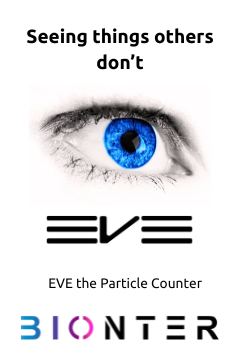Advertisement

Document › Details
Medicines Discovery Catapult (MDC). (10/5/23). "Press Release: UK Launches Its First National Total-body PET Platform for Drug Discovery".
Patients to benefit from game-changing full-body scans to provide a richer picture of human health for clinical research
A partnership between Medicines Discovery Catapult (MDC), the Medical Research Council (MRC) and Innovate UK will deliver scientific breakthroughs with the launch of the UK's first-of-its-kind national total-body positron emission tomography (PET) imaging platform for drug discovery.
The National PET Imaging Platform (NPIP) will deploy total-body PET across the UK, bringing together transformational research from two state-of-the-art total-body PET imaging scanners. It will transform medical research and industrialise cutting-edge technology, enhancing the quality and speed of drug discovery.
By facilitating access to total-body PET imaging for clinicians, academics and industry, NPIP will help accelerate discoveries, leading to more advances for UK researchers and better outcomes for patients, improving the calibre of healthcare now and in the long term.
PET scanning is a crucial, non-invasive imaging technique that can detect diseases' early onset. With higher sensitivity than existing technology, NPIP’s total-body PET scanners will provide new insights into anatomy that have never been seen before, improving our detection, diagnosis and treatment of complex, multi-organ diseases.
Current PET technology is less sensitive and requires the patient to be repositioned multiple times to achieve a full-body field of view. Total-body PET scans are quicker, exposing patients to considerably lower doses of radiation, meaning more patients, including children, can participate in clinical trials to improve researchers’ understanding of diseases. The speed of total-body PET scanners means that NPIP will be able to facilitate more patient scans, enhancing the scale and impact of clinical research projects.
This richer picture of human health will help us develop drugs and diagnostics more effectively and bring them to market quicker, benefiting patients and enabling the UK to unlock new opportunities to treat complex diseases like cancer and cardiovascular and neurological diseases.
Supplied by Siemens Healthineers, the two total-body Biograph Vision Quadra PET/CT scanners capture outstanding image clarity of a patient’s entire body in near real-time. The scanners will be situated in Scotland and London, serving the length and breadth of the UK. Each facility will be jointly managed by the Universities of Edinburgh and Glasgow in Scotland and by King’s College London and Imperial College London in London, and the scanners are expected to be operational as soon as April 2024.
NPIP’s network of infrastructure and intelligence will provide a complete picture of patients and how they respond to novel drugs and treatments. Uniquely, it will also connect insights from many research programmes and trials. In doing so, it will begin to build a rich bank of data that the PET community can access for the benefit of patients.
The UK Government, through the UK Research and Innovation (UKRI) Infrastructure Fund, has invested £32 million into the groundbreaking total-body PET technology that will help drive the UK’s reputation as a global life science superpower.
George Freeman MP, Minister of State at the Department for Science, Innovation and Technology, said: “Advances in imaging and informatics pioneered here in the UK have led to a step-change in how we diagnose and treat diseases like cancer and Alzheimer's, bringing hope to patients and their families.
"Our £32 million backing for this Platform will give British clinicians and researchers access to a never-before-seen breadth of data, pushing forward new innovations from drug discovery to screening, strengthening our life sciences sector, and ultimately transforming lives."
Dr Juliana Maynard, Director of Operations and Engagement for the National PET Imaging Platform and Head of Translational Imaging at Medicines Discovery Catapult, said: “PET scanning is nothing short of transformational for patients who need it the most. Total-body PET scanners can detect serious diseases with unprecedented speed and accuracy. The launch of NPIP and provision of these state-of-the-art total-body PET scanners is a testament to the UK's expertise and strength as a life sciences superpower and the collaborative efforts of the entire UK PET community.
“The value of NPIP is huge for the UK life sciences sector, providing researchers with access to superior clinical data, not just from their own trials but from every research programme that joins the platform. NPIP will allow the kind of collaboration in imaging research the likes of which the UK has never seen before. It will set a new standard of excellence for UK medical imaging research, unlocking innovative discoveries and attracting the international research community to conduct clinical trials on British soil.
“It means that, collectively, we can power forward drug discovery with renewed confidence and drive world-leading capabilities in detection, diagnosis, and treatment.”
Professor Lucy Chappell, Chief Scientific Advisor to the Department of Health and Social Care and CEO of the National Institute for Health and Care Research, said: “This new platform represents a huge step forward for clinical research, enabling more patients to take part in clinical trials, delivering more scans, and enhancing our understanding of diseases. Ultimately this could help lead to the development of new drugs and treatments to tackle some of the biggest health challenges of our time, from cancer to dementia.
“Backed by £32 million through the UK Research and Innovation Infrastructure Fund, this demonstrates once again the UK’s commitment to investing in cutting-edge technology to boost research and cement our reputation as a life sciences superpower.”
Dr Adam Staines, Project Director for the National PET Imaging Platform and Associate Director at the Medical Research Council, said: “Total-body PET imaging represents a significant technological advancement which will unlock many health advances in the next decade. The scientific advancements that will be enabled through the creation of NPIP will allow academic researchers, UK industry, and health professionals across the UK to all benefit from the investment. This will, in turn, maintain the UK’s position at the forefront of human imaging research and benefit many patients directly across key societal challenges such as dementia and cancer. This is yet another excellent example of how UKRI Infrastructure funding is maintaining the UK as a science superpower by providing our researchers with the necessary tools to work at the cutting edge.”
Dr Stella Peace, Innovate UK Executive Director for Healthy Living and Agriculture, said: “Innovate UK is delighted to have been part of the collaboration delivering this cutting-edge technology, ensuring that the UK lead in this field. The National PET Imaging Platform will open opportunities for SMEs operating within the drug discovery sector, giving them access to state-of-the-art equipment and invaluable data to progress their innovations faster and deliver better outcomes for patients. This advance strengthens the UK's capabilities and will support many businesses in the pharmaceutical R&D space.”
Dr Samana Brannigan, Head of Health Technologies at Innovate UK, said: “Through our collaborative efforts and embracing this cutting-edge technology, we will ensure the UK is leading this field. NPIP will open opportunities for SMEs operating within the drug discovery sector, giving them vital access to state-of-the-art equipment and invaluable data to progress their innovation faster. Our commitment to establishing and nurturing a national PET imaging network will strengthen the UK's capabilities, providing robust support for clinical research initiatives and businesses in the pharmaceutical R&D space.”
Professor Chris Molloy, CEO of Medicines Discovery Catapult, said: “This programme is a great example of a Catapult in action: industrialising and driving adoption of innovative technology. MDC’s work helps NPIP bring the community together and reshape drug discovery for patient benefit."
Visit www.npip.org.uk to find out more.
The National PET Imaging Platform is funded through the UKRI Infrastructure Fund.
ENDS
ADDITIONAL QUOTES
Hilary Evans, Chief Executive, Alzheimer’s Research UK, said: “At a time when advancements in diagnostic technology are urgently needed for those affected by dementia, it’s fantastic to see the total-body PET platform launch in the UK. Equitable and rapid access to state-of-the-art PET scanners will provide dementia researchers and clinicians with a new tool to better understand the complex mechanisms that underpin this condition. We hope it will also support the delivery of dementia clinical trials through increased efficiency and participation and could help embed research in clinical practice across the UK.
"The platform aims to improve data collection and promote collaboration across academia, industry, and the NHS – these are two key areas that the Dame Barbara Windsor Dementia Mission is spearheading to ensure that the UK is a global leader in dementia research, and we look forward to seeing the impact that this new innovation could have on patient outcomes."
Dr Michele Afif, CEO of The Brain Tumour Charity, which funds world-class research and provides specialised support for anyone affected by brain tumours, said: “The National PET Imaging Platform is an exciting and innovative way to help improve imaging in medical research. Advancements in imaging technologies will ultimately improve research and diagnostic capabilities in the UK, which will hopefully result in more effective disease diagnosis and kinder treatments in the future.
“This is urgently needed for those affected by a brain tumour – the biggest cancer killer of children and adults under 40 years old. We look forward to following the progress of this imaging platform and hope it will have promising outcomes for clinical research for hard-to-treat diseases such as brain tumours.”
Professor Sir Nilesh Samani, Medical Director at the British Heart Foundation, said: “PET scanning is a crucial diagnostic tool, allowing doctors to detect heart conditions by visualising blood flow to the heart. As we enter a new era of PET technology, the National PET Imaging Platform is set to transform the landscape of clinical research. By allowing researchers and clinicians to build a greater picture of cardiovascular and overall health, NPIP will power new breakthroughs, improving the detection and treatment of heart conditions.”
Dr Sam Godfrey, Cancer Research UK Research Information Lead, said: “This technology could be a game changer for cancer research in understanding the impact of cancer on the whole body. The effects of this disease are not only confined to the location of a tumour. We hope that these total-body PET scanners will give us new insights into how cancer interacts with the body in harmful ways, such as when the disease spreads to other parts of the body, and the whole-body wasting – cachexia – that occurs in advanced cancer patients.”
Professor Alexander Hammers, Head of PET Imaging Centre, School of Biomedical Engineering & Imaging Sciences at King’s College London, said: “The opportunity created by this national facility will build a springboard for the UK to lead the future of nuclear medicine. Through its onsite co-creation with industry partners and King’s academics, the PET Centre at St Thomas’ Hospital is uniquely located to respond to this challenge and create improved healthcare outcomes for our patients.”
Professor Eric Aboagye, Professor of Cancer Pharmacology & Molecular Imaging at Imperial College London, said: “We welcome this exciting new initiative, which we hope will greatly advance the UK’s clinical imaging research. With 40 times the sensitivity of conventional PET scans, whole-body PET will enable us to study what we couldn’t before, gaining new insights into paediatric disease, cancer screening, investigations into the brain-gut axis, whole-body vascular monitoring, cancer evolution, and cell tracking.”
Professor David Newby, Personal Chair – BHF Duke of Edinburgh Chair of Cardiology, University of Edinburgh, Co-Director of the NPIP Scotland Centre, said: “The Scotland total-body PET facility will bring together academics, industry and clinicians to create an integrated and accessible national PET facility for the benefit of patients across Scotland and the north of England. The total-body PET scanner will allow us to examine patients in ways that haven’t been possible before, propelling medical innovation and discovery, and ultimately improving the detection, diagnosis and treatment of complex diseases, including cancer.”
Dr David Lewis, Group Leader, University of Glasgow and Cancer Research UK Scotland Institute, Co-Director of the NPIP Scotland Centre, said: “Total-body PET scanners are a quantum leap forward in the technology of body scanning, and we are proud that a partnership between the University of Edinburgh and the University of Glasgow will jointly manage one of the first of these cutting-edge scanners in the UK. The Scotland total-body PET scanner will be a catalyst for innovative new research and cross-sector collaboration, ultimately benefitting patients by improving our understanding of complex diseases.”
Lawrence Foulsham, Business Manager for Molecular Imaging at Siemens Healthineers GB&I, said: "Total-body PET scanning isn't just a leap in technology, it's a giant stride towards a healthier future. The NPIP launch is a testament to our commitment to innovation and collaboration in the field of medical imaging. We at Siemens Healthineers are incredibly proud to support this initiative with two Biograph Vision Quadra PET/CT scanners which are set to support NPIP in unlocking a range of clinical and research opportunities across the country."
NOTES TO EDITORS
For more information about NPIP and its partners, please visit www.npip.org.uk.
Please visit the NPIP media library for high-resolution photography.
Please contact media@npip.org.uk to arrange interviews with spokespeople or for any other enquiries.
About NPIP
The National PET Imaging Platform (NPIP) is the UK’s first-of-its-kind national total-body PET imaging platform for drug discovery.
Driven by a partnership between Medicines Discovery Catapult (MDC), the Medical Research Council (MRC) and Innovate UK, NPIP is designed to give the UK’s pioneering researchers unprecedented access to technology that will explode the scope of research into multi-organ, complex diseases.
NPIP will bring together data from two state-of-the-art total-body PET imaging scanners located at St Thomas’ Hospital, London (jointly managed by King’s College London and Imperial College London), and The Royal Infirmary of Edinburgh (jointly managed by the Universities of Edinburgh and Glasgow), and make it accessible to academics, industry and clinicians.
Supplied by Siemens Healthineers, the two Biograph Vision Quadra PET/CT scanners are equipped with technical precision that redefines the boundaries of molecular imaging and enables imaging of a patient’s entire body in near real-time.
The scanners are expected to be operational as soon as April 2024.
This network of infrastructure and intelligence will not only provide a complete picture of patients and how they respond to novel drugs and treatments, but it will connect insights from a multitude of research programmes and trials.
NPIP will help connect imaging data and make the UK’s medical research more effective for patient benefit.
For more information about NPIP and its partners, please visit www.npip.org.uk.
About Medicines Discovery Catapult
Medicines Discovery Catapult (MDC) is an independent, not-for-profit organisation and part of the Catapult Network established by Innovate UK.
MDC's vision is to reshape drug discovery for patient benefit by transforming great UK science into better treatments through partnership.
MDC supports drug discovery innovators by making world-class expertise, facilities, complex technologies and advanced analytics accessible. We connect the life sciences ecosystem, driving a global focus on barriers to innovation in areas of unmet patient and technological need.
By industrialising new technologies to drive the adoption of new scientific tools and techniques, MDC enables successful medicines discovery.
Click here for more information.
About Innovate UK
Innovate UK is creating a better future by inspiring, involving and investing in businesses developing life-changing innovations.
We provide targeted sectors with expertise, facilities and funding to test, demonstrate and evolve their ideas, driving UK productivity and economic growth. Join our network and communities of innovators to realise the potential of your ideas and accelerate business growth.
Innovate UK: inspiring business innovation.
Click here for more information.
About the UKRI Infrastructure Fund
The UKRI Infrastructure Fund supports the facilities, equipment and resources that are essential for researchers and innovators to do ground-breaking work.
This strategic fund helps to create a long-term pipeline of research and innovation infrastructure investment priorities for the next 10 to 20 years. It supports a range of projects from new infrastructures to major upgrades, delivering a step change in infrastructure capability and capacity.
The Infrastructure Fund spans the complete disciplinary spectrum and funds infrastructures located across all of the UK’s regions and nations, and those which form part of major international collaborations.
Click here for more information.
Record changed: 2024-01-20 |
Advertisement

More documents for United Kingdom (GB) (govt)
- [1] Earlybird VC Management GmbH & Co KG. (2/14/24). "Press Release: Earlybird Health Closes Fresh Fund of EUR 173m". Berlin & Cologne....
- [2] UK Government (Dept. for Science, Innovation and Technology). (12/5/23). "Press Release: Government Publishes £2 Billion Vision for Engineering Biology to Revolutionise Medicine, Food and Environmental Protection"....
- [3] Cresset Biomolecular Discovery Ltd.. (10/18/23). "Press Release: Cresset Targets International Growth with Innovate UK Scaleup Programme". Cambridge....
- [4] Exscientia plc. (10/17/23). "Press Release: Parker Moss to Join Exscientia as EVP, Corporate Development". Oxford....
- [5] NK:IO Ltd.. (7/11/23). "Press Release: Imperial Spinout NK:IO Awarded £1.6M Innovate UK New Cancer Therapeutics Grant for Development of Pioneering NK Cell Therapy". London....
- [6] BioNTech SE. (1/6/23). "Press Release: BioNTech Announces Strategic Partnership with UK Government to Provide up to 10,000 Patients with Personalized mRNA Cancer Immunotherapies by 2030". Mainz....
- [7] Medicines Discovery Catapult (MDC). (10/26/22). "Press Release: Medicines Discovery Catapult Appoints International Entrepreneur Volker Hirsch to Bolster Commercial Expertise"....
- [8] Medicines Discovery Catapult (MDC). (8/11/22). "Press Release: Medicines Discovery Catapult and Zeiss Set Sights on Advancing Microscopy. Driving the Application of Microscopy in Drug Discovery"....
- [9] Francis Crick Institute Ltd., The. (7/11/22). "Press Release: £1billion Invested in the Future of UK Discovery Science"....
- [10] Moderna, Inc.. (6/21/22). "Press Release: Moderna Announces Plan to Bring mRNA Innovation to the United Kingdom". Cambridge, MA....
To subscribe to our free, monthly newsletter for the European life sciences, please send an e-mail to info@iito.de and simply fill the subject line with the word »LSE Newsletter«
Find more infos about advertising at [iito] web portals in our media flyer [iito] in a Nutshell [PDF file]
Advertisement

» top
![[LSE] Life-Sciences-Europe.com - The European Life Sciences Web Portal](/images/basics/lse-life-sciences-europe-portal-logo.svg)





![Picture [iito] LSE iitoLifeScience Life Sciences Mass Spec 120x120px](/banner/iito-business-intelligence-20230710-120-120-twitter-iitolifescience-germany-europe-mass-spec.jpg)


![Picture [LSUS] Life-Sciences-USA.com – The Business Web Portal 120x600px](/banner/iito-20181119-120-600-lsus-life-sciences-usa-com.jpg)






